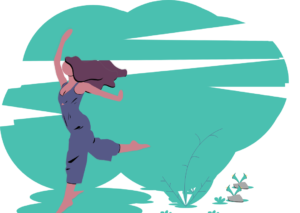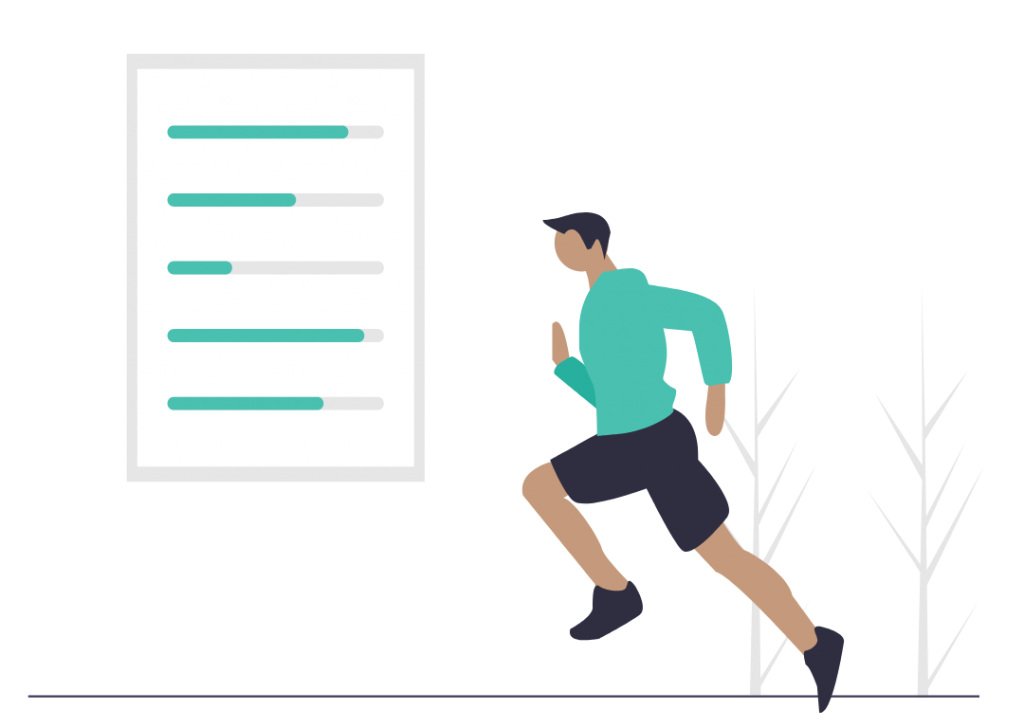
Don’t Stop Asking Questions
Kathleen is a hospice nurse who finds fulfillment in comforting families in their most difficult days.

Lickety's father cared for her mother when she was diagnosed with vascular dementia. Suddenly, he passed from pancreatic cancer. Lickety quit her career in Los Angeles and moved back home to Oregon to care for her mother. She shares how humor has helped her cope, the value she found seeking advice from those familiar with dementia, and the importance of building your village. This is Lickety's story.
As told to Open Caregiving and lightly edited to enhance readability while preserving the author’s voice.
My name is Lickety Glitz, a Gen X’er from the Pacific Northwest. For the last 4 years, in cahoots with my sister, I have been a care partner and now a caregiver to my mother with vascular dementia.
I was living in Los Angeles for work. I had been a former just about everything. From non-profit arts administrator to cabaret performer to post-production professional to the Crappiest Daughter of the Year award winner for 40+ years in a row.
Our family was shaken when Mom was diagnosed with vascular dementia in 2012, but my dad set the tone for the journey. Dad vowed to keep his sweetheart at home and take care of her until the day she died. My sister and I believed him because he’s that kind of man. Four years later, he was also the kind of man to die of pancreatic cancer. Suddenly. With little time for us to do anything except promise him we would take up the baton and continue the race.
After Dad’s death, it was clear to my sister and I that Mom could no longer live on her own. So I gave up my career to move my boyfriend and I back home to live with Mom. As strange as it may seem, having to come home to take care of Mom was the last gift my father gave to me. It got me out of Los Angeles and back to Oregon, where I belonged. Although, it sucked to give up the only money-making career I’d ever had!
I was the first-born child, and always very independent. I loved and appreciated my parents, but did not rely on them much in my day-to-day life. We joked that I spent more time with them after I moved to Los Angeles than I did when I lived 20 minutes away from them!
But I inherited their greatest legacy: both my mother and my father had a wonderful sense of humor, as does my extended family. We always took pleasure in the absurdities of life, mostly our own. If we could tease each other with affection, and laugh at our failings, we could deal with conflict and friction in a much more constructive way.
Dementia has not diminished this strategy. We do not dismiss the tragedy, and we acknowledge the heartbreak. You can’t gloss over the gut punches in this disease. But both take a back seat to the playfulness, wit, and comic sensibilities our parents bestowed upon us. It has served us well on this tough journey.
Coping with humor has allowed me to accept dementia instead of fighting a losing battle in my own brain that this death is somehow unfair and unjust. That I’ve been robbed of my mom.
I have never once thought of my mother as “lost” to me because of dementia. She has always been Mom before and since dementia. Sure, she is wildly different now from a decade ago, but each stage of her life has been wildly different from what came before.
As a toddler, a young woman, a wife and mother trying to grow two decent human beings, and now a woman in the final stage of dementia. It is still all her. This is all her life.
Early on in her diagnosis I found the common need to hold on to who I wanted her to be unproductive. When I got around that roadblock and instead accepted who she is (not always happily, or with abundant grace, mind you!), I became much more mentally equipped to achieve the goal of assisting my mother in living her best life while walking her to the threshold of death.
While I am now responsible for every aspect of my mother’s life, I have never stopped teasing her, never stopped treating her with humor and love, never let a moment pass where she can once again give me that disapproving “Mom look” followed by her signature sly smile that tells me she’s secretly proud I’m still a bit of a rascal.
I knew very little about dementia before Mom’s diagnosis. I had the same perceptions of dementia as many people. Once you are diagnosed you immediately revert to an incoherent, blubbering mess of a person who slings poop around, and should promptly be consigned to exclusion from the remainder of the population. The medical professionals didn’t offer hope of life after diagnosis. What I had seen in popular culture was an overwhelming tragic narrative and I expected the same thing in our journey. But I found that nothing could be further from the truth. (Well, the poop slinging is definitely a thing, but that comes later.)
Mom lived LIFE! She still laughed, had opinions, preferences, insights. She still does now, in Stage 7, although they are much harder to discern due to dementia’s progression. But that was a pleasant shock to me in the beginning. I have since connected, via social media, with so many proactive folks living with dementia, advocating for change and inclusion, telling their stories, and offering insights into the disease. They have been crucial in helping me improve the care I offer Mom and solidified my experience that life does not end after diagnosis. Boy howdy, life is going to change! But it ain’t over by a long shot.
I’ll tell ya what shocked me the most about dementia caregiving. Professionals had no idea how to help! Doctors, social workers, and government employees in aging care departments rarely offered desperately needed guidance. My requests for information, support, and community resources were almost always met with a shrug of the shoulders. “Well, you know, every dementia person is different.” As if that excused them for not having answers to common problems and needs.*
When I found the online forums and social media groups focused on dementia care is when I finally understood that the real experts on dementia are those living with it, and those helping them.
* Exception to the rule: Mom’s geriatric psychiatry doctor has been crucial in helping us find medication solutions to ease the worst of dementia’s manifestations.
Wait, what? I’m supposed to be taking care of myself too? Why didn’t somebody tell me?!
Actually, I’m all for caregiver self-care. I think it’s a smashing concept, bound to be a worldwide phenomenon if any caregivers ever has the time to put it into practice.
Social media and forums like Alzconnected or sub-Reddit threads specific to Alzheimers, dementia, and caregiving. As much as my friends’ support has been crucial to keeping me up and moving forward, these communities have been invaluable with advice, suggestions, empathy, and insights to make me a better caregiver to Mom.
Trust yourself. I believe this is a biggie for most of us to finally realized that all the advice from “experts”, family members, and seasoned caregiver is just that: advice. Take it in, apply it to what you know about your dementia person, your family, your strengths, weaknesses, financial situation, and make the best decision possible by looking at the whole picture. YOU are the expert!
And since it’s dementia, the first solution isn’t always the answer! So be ready to zig when that dang disease zags. Because it’s going to. A lot.
The most important thing I tell new dementia folks and their care partners is to build their village. Alienate no one if you can help it. Keep family and friends informed and familiar with their dementia person. When you are easy around your dementia person you help others lose their fear of saying or doing the wrong thing, giving them the power to accept and embrace their dementia friend or family member. Even during COVID, virtual get-togethers, or drive-bys and driveway visits can retain a loved one’s involvement to the benefit of all.
Increase your village by befriending other dementia people and caregivers. This is now harder to do because of the pandemic, but virtual caregiver support groups and meet-ups are bursting out all over!
Dementia is so, so tough. You will both need all the support and help you can get for the long haul.
Lickety Glitz is the author of Stumped Town Dementia; a personal blog chronicling the dementia adventures of two sisters (Girl and The Other Girl), sharing hilarious and heartbreaking moments of life with their mother who has vascular dementia.

Kathleen is a hospice nurse who finds fulfillment in comforting families in their most difficult days.

Andrew’s dreams of exploring life away from home, as a college student, were interrupted when his father was diagnosed.

Chris was in his mid-50s when his mom was diagnosed with small-cell carcinoma and learned that she had limited time left to live.